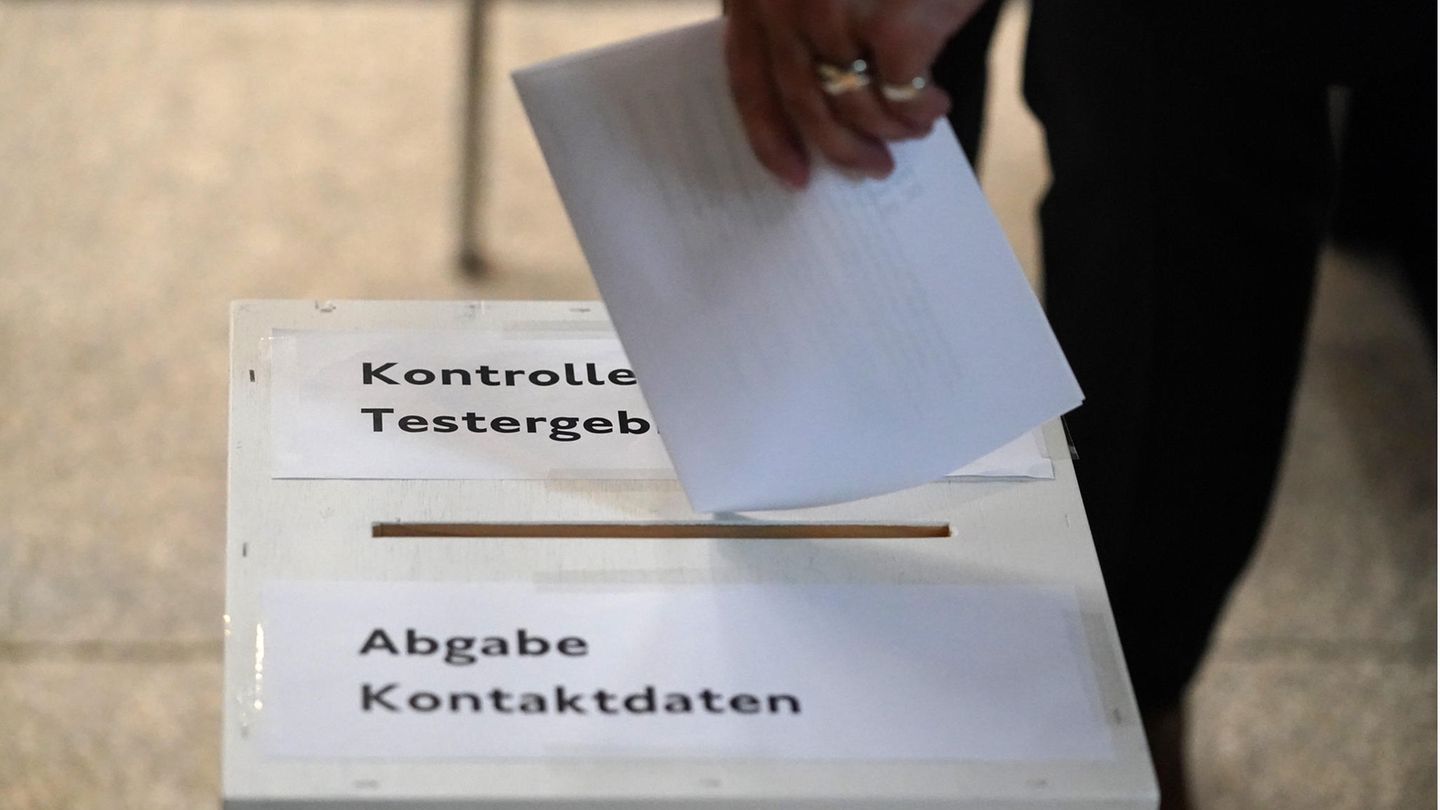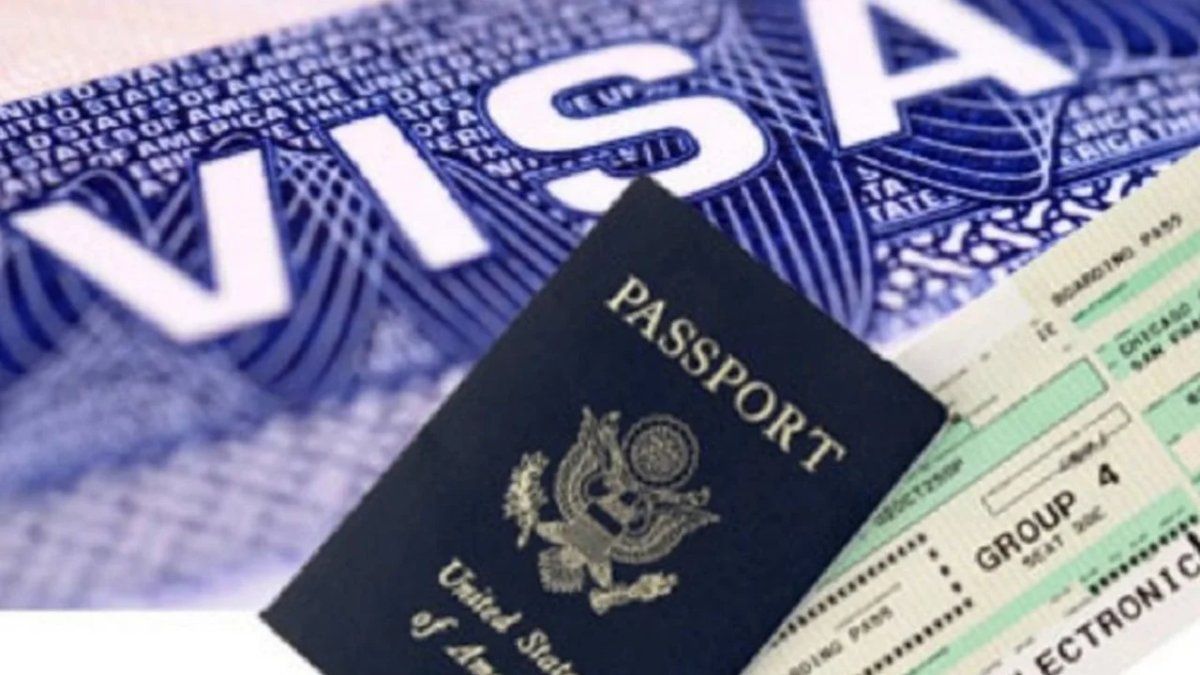The contact tracking and control of the 3 and 2G certificates will be particularly important this year. Vaccinated people are becoming increasingly infected and the RKI reports record numbers of corona cases every day. But the control system can still be expanded.
The events of the pandemic roll over and contradict each other. If Health Minister Jens Spahn (CDU) initially spoke out in favor of the end of the epidemic situation, this proposal will be implemented on November 25 with the support of the traffic light parties. Protest came from the federal states, who fear a new patchwork quilt. At the same time, the future traffic light coalition dated “Freedom Day” – the end of all protective measures – on March 20th. This year, the Christmas markets are also supposed to open again. The federal states and the organizers partly decide on the requirements. In some places a hygiene plan has to be presented, in other places not. In some markets the 3G rule applies, in others the 2G rule, and in some cities vaccinated people are to be separated from those who have not been tested. Of course, these measures are subject to controls, as the organizers of some markets emphasize.
Unlike last year, contact restrictions are not currently an issue. Meanwhile, the coronavirus continues to spread, the number of cases is increasing continuously. On Monday, the RKI recorded its first high since the start of the pandemic – and every subsequent day trumps the previous one. Most recently, the health ministers of the federal states, together with Jens Spahn, discussed how the infection process could be brought back under control. In addition to an offer for a booster vaccination, the ministers agreed that contacts and evidence would have to be rigorously checked again. Because they have been neglected lately, according to the allegation in the direction of restaurateurs. STAR PAID Corona Winter Update 07.56
Only ten percent are checked regularly
In larger cities, such as Heidelberg, Karlsruhe, Mannheim or Pforzheim, violations have already been found in random checks, confirmed a spokesman for the Ministry of Social Affairs, Health and Integration in Baden-Württemberg. “Most of the time the companies did not have a hygiene concept or the hygiene concept was flawed.” In addition, some of the contact details were not collected or not collected correctly. According to the information, 3G certificates were also checked negligently. “Most innkeepers work correctly and responsibly,” emphasized the spokesman.
These observations are backed up by scientific research. According to the “Covid-19 Snapshot Monitoring” published by the University of Erfurt in September, more than half of the respondents were (almost) never asked for proof of vaccination. Only ten percent stated that they often had to provide evidence. The findings coincide with data from the polling institute Civey, which carried out a similar survey for the magazine “Business Insider”. According to this, 40 percent of those surveyed stated that they had not been checked for proof of vaccination, proof of recovery or negative corona test on their last visit to a restaurant, bar or cinema. Almost a third was checked, but not asked for ID – although it is compulsory. According to the survey, only nine percent of the participants were properly checked, including evidence and ID.
No clear information on how the controls are to be reviewed and implemented
Criticism of the control fatigue also came from the German Hotel and Restaurant Association (Dehoga). To the stern said the general manager of the federal association, Ingrid Hartges, said: “The applicable corona protective measures must be observed by all companies. This includes, in particular, consistent access control.” The members have been informed of the legal requirements and obligations since the beginning of the pandemic. Hartges also pointed out that violations could result in fines. In Thuringia, for example, disregarding the measures could cost between 1,500 and 5,000 euros. “With all due understanding for the additional effort, non-compliance with the requirements is also unfair to the vast majority of our members who abide by the rules,” Hartges said stern.
It is not entirely clear how the stricter verification controls required by the health ministers are to be carried out. The Federal Ministry of Health referred to the federal states on request. They in turn announced that the control of the restaurateurs was the responsibility of the health authorities, district authorities, district offices or the local police – depending on the country. However, there are no specific guidelines for restaurateurs. “In almost all federal states, the hospitality industry is obliged to check the relevant evidence, without always explicitly stating how this control is to be carried out,” said Dehoga Chief Executive Hartges. In some federal states an identification document is required, in others not. Commentary on federalism 1240
The state of Baden-Württemberg has already responded to the demands of the health ministers and called for “focus control actions” in the catering trade. “But even after this priority action, there will of course be ongoing controls,” said the spokesman for the Ministry of Social Affairs, Health and Integration. On request, the Saxony Ministry of Social Affairs referred to a decree that obliges the districts and independent cities to set up at least three control teams, consisting of employees of the health and public order office. “The state police support this by sending police officers to the teams. The controls by the teams have to be carried out daily,” it said. Lower Saxony and Schleswig-Holstein emphasized that it was the responsibility of the organizers to actively control evidence.
The benefits of the Corona apps
In addition to verification checks, contact tracking is also an important means of combating the pandemic. For this purpose, the Federal Ministry of Health launched a 69 million euro project in the summer of 2020: the Corona Warning App (CWA) was intended to detect and interrupt chains of infection. According to the Federal Ministry of Health, the app has been downloaded 35.8 million times since its introduction in mid-June 2020 (as of 11/10/2021). Via the app, users can share their test results so that other users and contacts are informed about the possible risk of infection and the health authorities are relieved. However, users are not obliged to do so. “The CWA is based on the principles of voluntariness, anonymity and decentralization. These are essential for the high level of acceptance among the population,” said a spokesman for the Federal Ministry of Health.
So far, however, only 624,436 users have shared their results via the app. According to a study by the Ministry of Health, 83 percent of users who were warned of a high risk of infection with a so-called red warning had themselves tested. Of those who tested positive, 80 percent shared their results through the CWA. “As of June 2021, an extrapolation of 475 thousand shared positive test results showed that up to then around 200 thousand users had tested positive after a red warning and thus chains of infection were successfully broken. If the assumptions are updated, this number should now be a good 30 percent higher lie.”
The Luca app is also used a million times. Their usage numbers have risen from slightly more than five million users to over 35 million since May 2021. In October alone, 181,072 warnings were played out by the health authorities. In view of the rapidly increasing number of cases, both apps would have to regularly sound the alarm among users.
The CWA and the Luca app, however, follow two different concepts. While the CWA registers people and risk contacts anonymously, the Luca app securely records visitor contact details, which are made available to the health department if required. When checking in with the CWA in closed rooms, it is also taken into account that the aerosols there also move over greater distances. Organizers and restaurateurs can generate a QR code in the CWA for check-in.
Apps like Luca are primarily intended to digitally implement the mandatory registration of people in restaurants, shops or events in the federal states in order to replace a questionable mess of paper. Visitors have to provide their contact details. As long as the infection protection regulations of the federal states prescribe the collection of personal data, the Corona warning app cannot take over this task. In May, however, Saxony was the first federal state to make it possible to use the CWA for legally binding contact tracking.
With material from DPA
Source From: Stern
David William is a talented author who has made a name for himself in the world of writing. He is a professional author who writes on a wide range of topics, from general interest to opinion news. David is currently working as a writer at 24 hours worlds where he brings his unique perspective and in-depth research to his articles, making them both informative and engaging.



